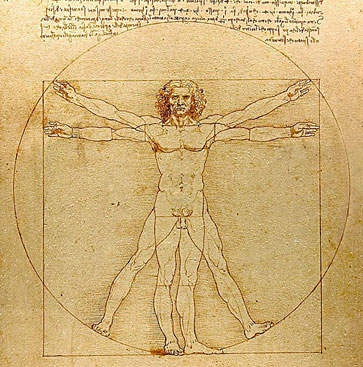
Reflection by Deborah Beach Giordano
A Golden Opportunity
“Never meet your heroes.”
~ contemporary proverb
It seemed like the opportunity of a lifetime. Several years after the publication of The Coming of the Cosmic Christ — which, for me, was an absolutely transformative book, one that was partly responsible for my return to the Christian faith — a local university sponsored a seminar at which the author, my hero, Matthew Fox, would be the featured speaker. I signed up immediately.
 On the assigned evening, I arrived early and discovered, to my sheer delight, that the gathering would be a relatively intimate one of perhaps thirty or so participants. We met in a conference room; no podium or platform to separate us, and Father Fox sat in a chair like all the rest, facing the assembled listeners. We were one: a single community, equals before the Lord, sharing the ministry of Christ with charity and acceptance.
On the assigned evening, I arrived early and discovered, to my sheer delight, that the gathering would be a relatively intimate one of perhaps thirty or so participants. We met in a conference room; no podium or platform to separate us, and Father Fox sat in a chair like all the rest, facing the assembled listeners. We were one: a single community, equals before the Lord, sharing the ministry of Christ with charity and acceptance.
Our group was relatively diverse: some skeptics, some believers, some doubters, some seminarians, some layfolk, and, perhaps because it was a Catholic university, several nuns were also in attendance. In keeping with the sense of warm hospitality, there was coffee and tea and homemade cookies and muffins. Most of us happily shared in this sweet communion, including Matthew Fox, who — I noticed and can report — took his coffee black, and chose an oatmeal cookie over a chocolate chip one (unlike myself).
Because we were seated classroom style, rather than around a table, we were obliged to set our drink-filled cups on the floor next to our chairs. And — just like all of us — our speaker had done the same. Unfortunately, before we had a chance to begin our conversation, he accidentally tapped his cup with his foot, spilling all of its contents onto the floor.
A nun seated in the second row leaped to her feet and immediately returned with a roll of paper towels; Father Fox watched as she thoroughly wiped up the spill and removed the debris, and then returned, presenting him with a replacement cup of coffee. Throughout the event it was clear that he was accustomed to — and comfortable with — having others clean up for him; he did not offer to help, or even get another cup of coffee for himself. I was surprised. I was disappointed. I was saddened.
It was a miracle. I was instantly healed of my idolatry.
Here, in the midst of “a community of equals,” my hero — cherished challenger of the status quo, outspoken opponent of the errors of the establishment, adversary of elitism, refuter of patriarchal privilege — utterly failed to act in accordance with the faith his writings proclaimed. He behaved just like an ordinary, untransformed, unenlightened, mortal human being. (And you know what stinkers we can be!)
Reality Check
Always meet your heroes.
~ my motto

It is the wisest path, and genuinely salvic: go and see for yourself. All of our idols have feet of clay; recognition of that fact will prevent us from getting into serious trouble.
People are going to be people: people — not saints, not angels, not gods; we can be fallible, fabulous, flakey, marvelous, misleading, magnanimous, malicious. Sometimes terrific, sometimes terrible, always human.
We can admire — or be appalled by — aspects of one another, we can learn from one another, care for one another, share with one another, love one another…. but we have no business worshipping one another. We will, invariably, be misled. As Jesus said in rebuking the Tempter, “You will worship only the Lord your God, and adore Him only.”
To worship another person is to be willfully blind to the faults and failings, biases and bungles that all flesh is heir to. Those we adore, our heroes and champions, become idols — something other than mere mortals. We treat their opinions as pronouncements; accepted unquestioningly, followed devoutly, defended zealously. Even When They Are Wrong; Even When We Know They Are Wrong. Our idol’s reputation becomes wrapped up in our own: they must be right — because they must never be wrong; otherwise all that they stand for is called into question. If they are wrong, we might be wrong, too. They become our gods; their righteousness, our religion.
Free to Be … Human
 If we step back and look at those we admire with open, clear-seeing eyes — rather than gazing, awe-struck and adoring — we will recognize their basic humanity, which is a supremely good thing, for them and for us.
If we step back and look at those we admire with open, clear-seeing eyes — rather than gazing, awe-struck and adoring — we will recognize their basic humanity, which is a supremely good thing, for them and for us.
To recognize and accept our heroes as mere fallible mortals frees them and us from the need to behave as though they are a Higher Level of being; it means we can admire what is good and inspiring, and criticize and refute what is deficient or destructive. Free from the obligation to hide or deny their human shortcomings, those we admire can change and grow. When we elevate others to “idol” status we prevent them from developing into (even) better people than they are.
Likewise, when we “worship only God, and adore Him only,” we, too, have opportunities to develop and grow wiser, more attentive, more reflective, more honest — with ourselves as well as others. When we cease adoring/idolizing other human beings and recognize their culpability, misdeeds, and mistakes — when we admit that even “the best sort” of person needs to amend behavior, ask for advice, acknowledge wrongdoing, apologize — we will find it easier to do so, as well.
My Hero is Better than Your Hero
 Another aspect of idolatry is the insistence that our hero is superior to that of others. Some of us will recall the dog food commercial from many years back, “My dog’s better than your dog…” It perfectly describes one of our major temptations: emphasizing (and often exaggerating) the qualities of of our idols. Conversely, we will emphasize (and often exaggerate) the flaws and failings of those they idolize — often in mocking terms. It makes us feel terribly superior, since we haven’t been taken in by these clearly defective individuals, as well as solidifying our own faith and confidence in our own idol — who is, by definition, flawless…..
Another aspect of idolatry is the insistence that our hero is superior to that of others. Some of us will recall the dog food commercial from many years back, “My dog’s better than your dog…” It perfectly describes one of our major temptations: emphasizing (and often exaggerating) the qualities of of our idols. Conversely, we will emphasize (and often exaggerate) the flaws and failings of those they idolize — often in mocking terms. It makes us feel terribly superior, since we haven’t been taken in by these clearly defective individuals, as well as solidifying our own faith and confidence in our own idol — who is, by definition, flawless…..
This sort of fascination with superiority (our desire to be on the side of the “top dog”) can take the form of an obsession with vilifying “the other.” The competition (the anti-hero) must be as flawed as our hero is flawless. In old school terms, our hero wears a white hat, the other a black one. It is another aspect of the Snake in the Garden’s enticement: our conviction that we can “know good and evil” leads us into an elementary sin. In succumbing to the belief that there is strictly, separately, exclusively good or evil, we ignore differences and degrees; we do not recognize shades of gray, variations in actions and intentions and character: we see good or evil, angels or demons — especially in those we adore, and those we abhor.
“Right” Thinking
Recently a friend spoke in praise of someone I know to have engaged in harmful conduct toward a child. My first impulse was to deny and refute Susan’s words, “No. You are wrong; she isn’t a nice woman at all. Let me tell you….” But that would be a fault, my felt-need to reinforce my own opinion/belief by cutting down that of another.
 ,
,My need to be “right” about the character of this personal anti-hero would have harmed my friend: downplaying or negating her genuine experience of goodness. It turns out that one of those I consider “wicked” is not purely evil, but is capable of behaving outside of the confines of my prejudice. It was important for me to hear that retelling of my “truth;” potentially changing my understanding, and hopefully, softening my heart.
It is important that we recognize variations — the good and the bad and the in-between-ness — in our heroes and in our anti-heroes. To be mindful of fields of gray is to to be more human and more humane toward others, and toward ourselves.
To adore and worship any being other than the Lord our God is to fall into a potentially deadly temptation. It causes us to hold our heroes to unattainable standards, to ignore critical failings, to deny facts, to accept lies, to believe that some mere mortals are perfect and flawless while considering others to be utterly depraved; it leads us to forsake mercy and compassion in pursuit of “moral certainty.”
When we assign people to a type or category — even if it is a favorable one, we are effectively imprisoning them, locking them into expected behaviors, attitudes, and intentions from which there is no escape. It is to deny their basic humanity, and eliminates any opportunity for us to grow and change, to live and to learn from one another.
Gracious Beloved, guide us and bless us; open our hearts to Your love. Inspire us with awe and humility — make us proud and grateful of the miracle of our lives and our world, and mindful of the grace and beauty of the lives of one another. You alone, Eternal, are perfect; You are the Source of all love and life. You alone are God. You, alone, do we worship. Amen.
May divine grace and joy abound in our lives and our world,
Deborah ✟
Suggested Spiritual Exercises
When you find yourself zealously defending (or condemning) an individual, stop and ask yourself why this is so important to you. What qualities or shortcomings does this person represent? What if what is being said is/isn’t true?
Equally — if you can do so with kindness and genuine interest, consider asking others who are impassioned about a particular person those same questions.
Note: This report is not meant as a judgment of Matthew Fox as a Christian or as a person — it may have been a unique incident; he may have routinely washed his own socks, ironed his own collars, cooked his own meals, cleaned up other’s spills as well as his own. This isn’t about him, only that the encounter highlights my own failing/falling into hero worship.